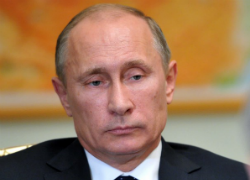
In November of 2012, Russian Parliament passed a new law requiring Non-Governmental Organizations (NGOs) that receive funding from foreign governments and participate in political activities to classify themselves as foreign agents. Under the 2012 law, any NGO that fails to classify itself as a foreign agent would face fines. The election monitor Golos was the first organization to receive fines under the new law, facing a penalty of 300,000 rubles. The law arose from Russian President Vladimir Putin’s fear that foreign governments were misusing nonprofit organizations in Russia to weaken the country’s political system. Putin has even openly accused the United States’ State Department of undermining the Russian government by providing funding for non-profit organizations in Russia.
The term “foreign agent” is often associated with the Cold War era and creates an undertone of espionage. Critics of the law not only fear the negative connotations of the term “foreign agent,” but also have further concerns that the law too loosely defines “political activity,” making it possible for the Russian government to use the law against almost any NGO. These fears have found validation as Russia’s Prosecutor General Yuri Chaika accused 215 Russian NGOs of violating this law on July 09, 2013.
On June 27, 2013, an organization called Supporting Competition in the CIS, a non-profit partnership, was the first to register as a foreign agent under this new law. By the end of June, Supporting Competition in the CIS remained the only organization officially to register itself under this classification. Instead, NGOs are standing together, refusing to register as foreign agents with the Russian government. Over the past three years, the 215 NGOs in violation of the law have cumulatively received around 6 billion rubles. The 215 NGOs found to be in violation of the law are no longer receiving such funds from foreign governments, but Prosecutors still believe they need to be registered as foreign agents.
Russian Prosecutors searched over 2,000 NGOs and found at least 500 violations of NGO law during the investigations, bringing legal actions against 36 groups. The investigations further uncovered that 17 of the NGOs accused of breaking the law received funding from foreign embassies. One NGO currently under attack for accepting funding from foreign embassies is Agora, a human rights group. The head of Agora, Pavel Chikov, stated, “this is an absolutely legal source of funding.” Chikov, like many others, recognizes that embassies have played an active role in funding projects of Russian NGOs and fears a restriction on embassy resources.
Many hope that the Russian government will adopt changes to the NGO Laws. The presidential council for human rights has even suggested solutions as simple as re-defining “agent” to get away from the Cold War implications of the term “foreign agent.” Although President Putin has agreed to reconsider changes to the NGO laws, there remains little guarantee that the Russian government will be amending the 2012 law. The underlying intentions behind the 2012 law still remain, as President Putin stated to human rights campaigners in July, “If people are involved in domestic politics and receive cash from abroad, society has the right to know which organizations these are and who funds them.”
Stacy Harper is a rising 3L at Denver Law and Marketing Editor for the Denver Journal of International Law and Policy.

